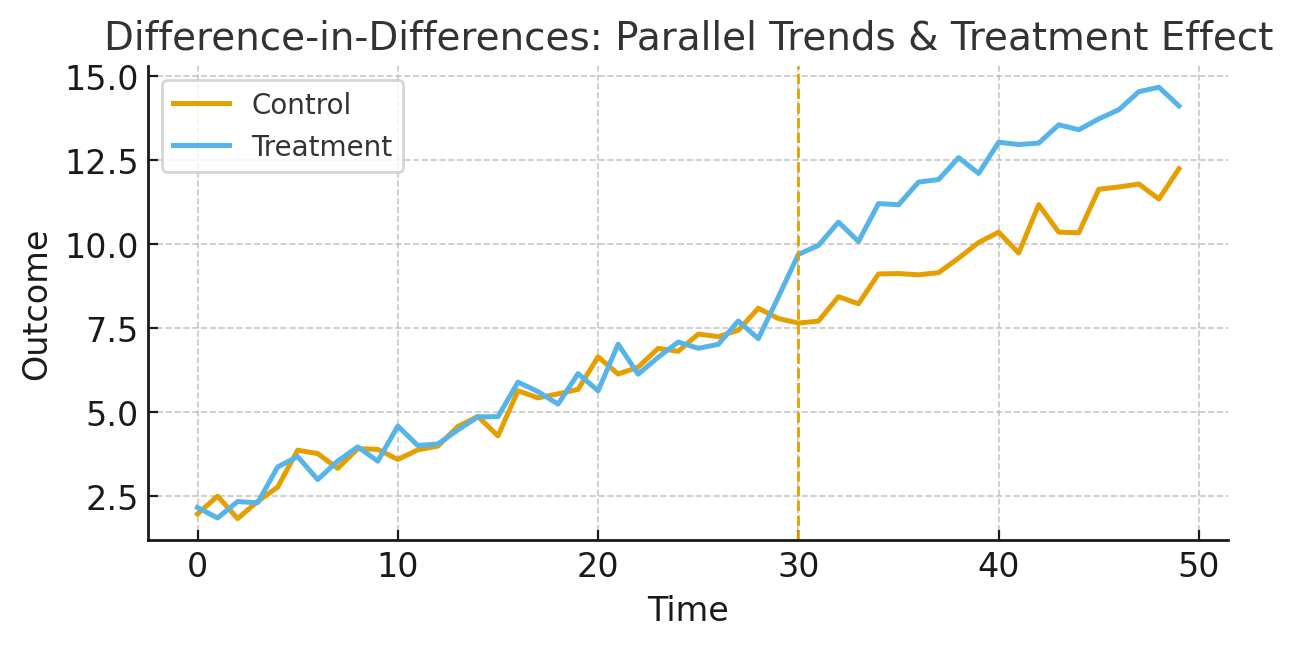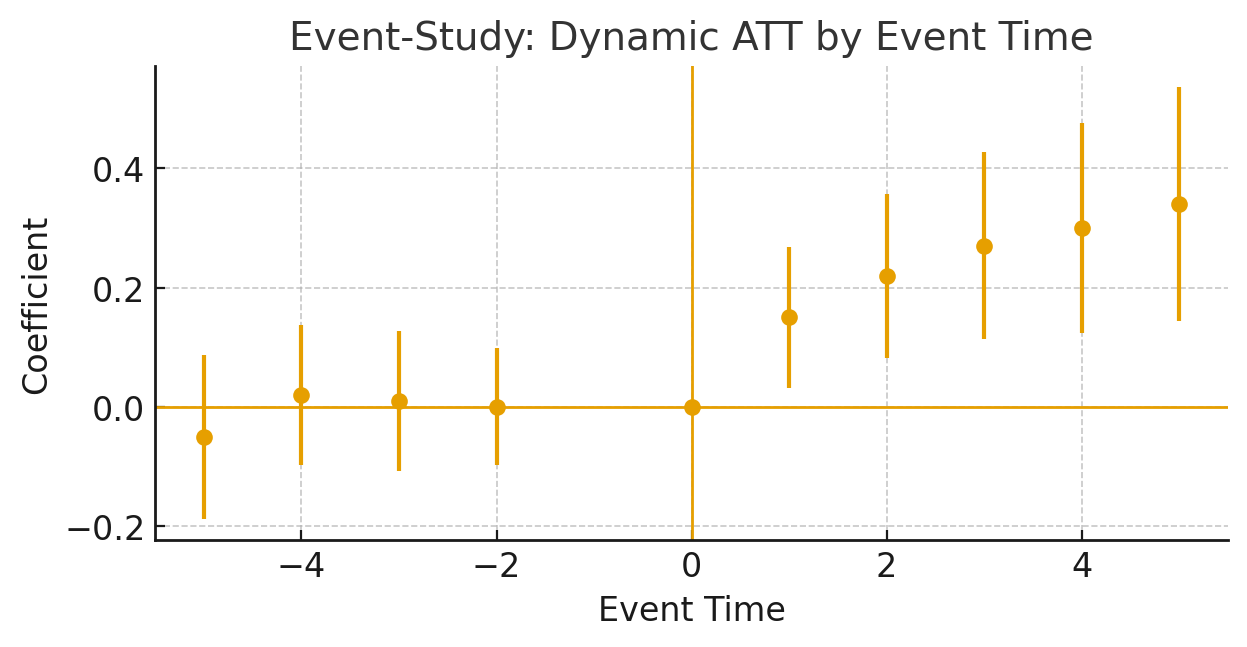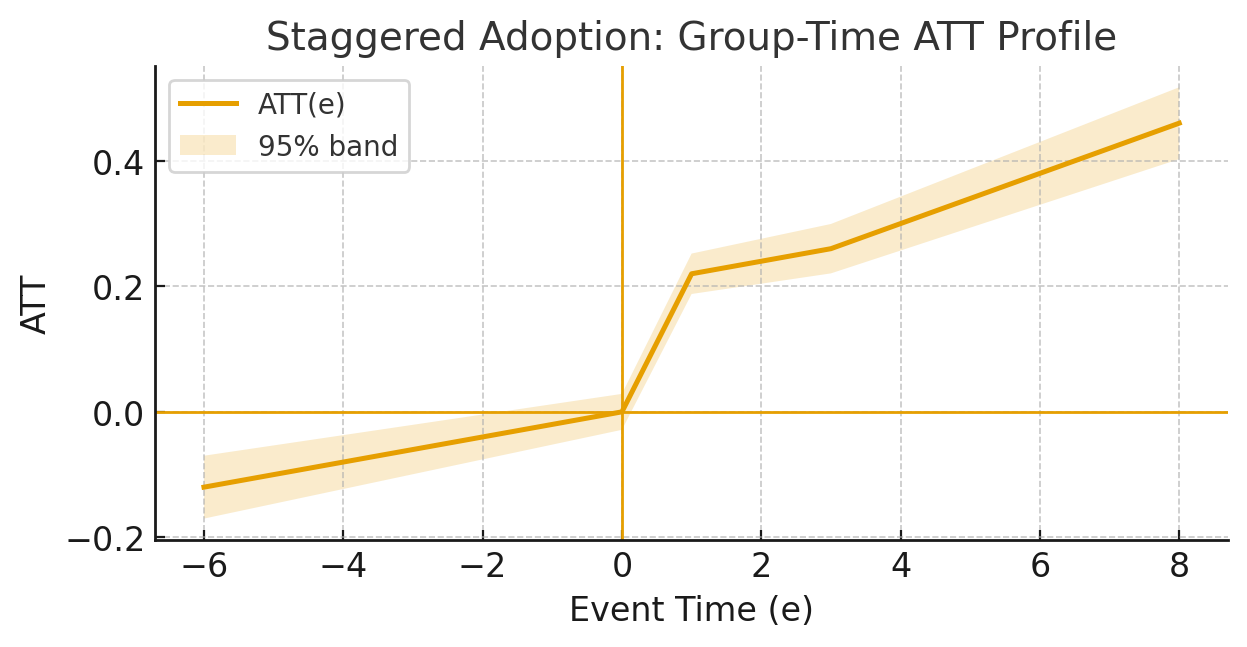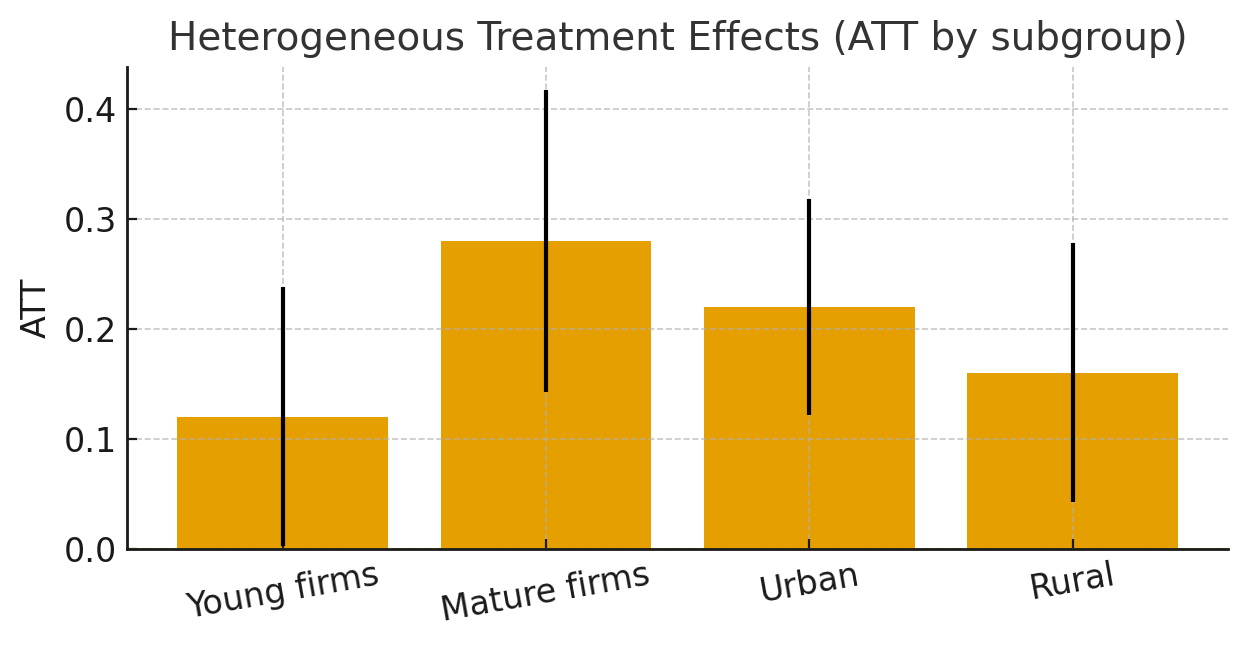Difference-in-Differences (DiD) & ATT — Policy/Program Evaluation in R
I implement modern DiD pipelines in R for coursework, projects, and research. Beyond the basic two-period/two-group TWFE setup, I cover staggered adoption, dynamic effects, and heterogeneous treatment timing using estimators that remain valid under differential timing.
Methods & estimators: classical TWFE DiD (with caveats), Sun–Abraham interaction-weighted event-study, Callaway–Sant’Anna group-time ATT(g,t) aggregation, DRDID (doubly robust DiD), IPW and outcome-regression DiD, cohort-specific IRs, and decomposition of TWFE weights. I also handle repeated cross-sections, panel fixed effects, unit and time trends, and cluster-robust / wild-bootstrap standard errors.
Design & diagnostics: parallel-trends assessment (graphical + pre-trend tests), placebo/leads checks, anticipation windows, group-specific trends, balance diagnostics, covariate adjustment, aggregation of ATT over horizons (event-time profiles), and proper inference under staggered exposure. I support multi-treatment intensities, policy rollouts, and subgroup heterogeneity analyses with clear visuals.
Deliverables: clean, reproducible R scripts (e.g., did, fixest, did2s, DRDID), event-study/ATT plots with uncertainty bands, and a concise memo interpreting identification, assumptions, and results. I am very familiar with these methods and provide hands-on R programming help end-to-end.
Get help: engagements start at USD $150; fixed quotes follow a brief review of your data and scope.



